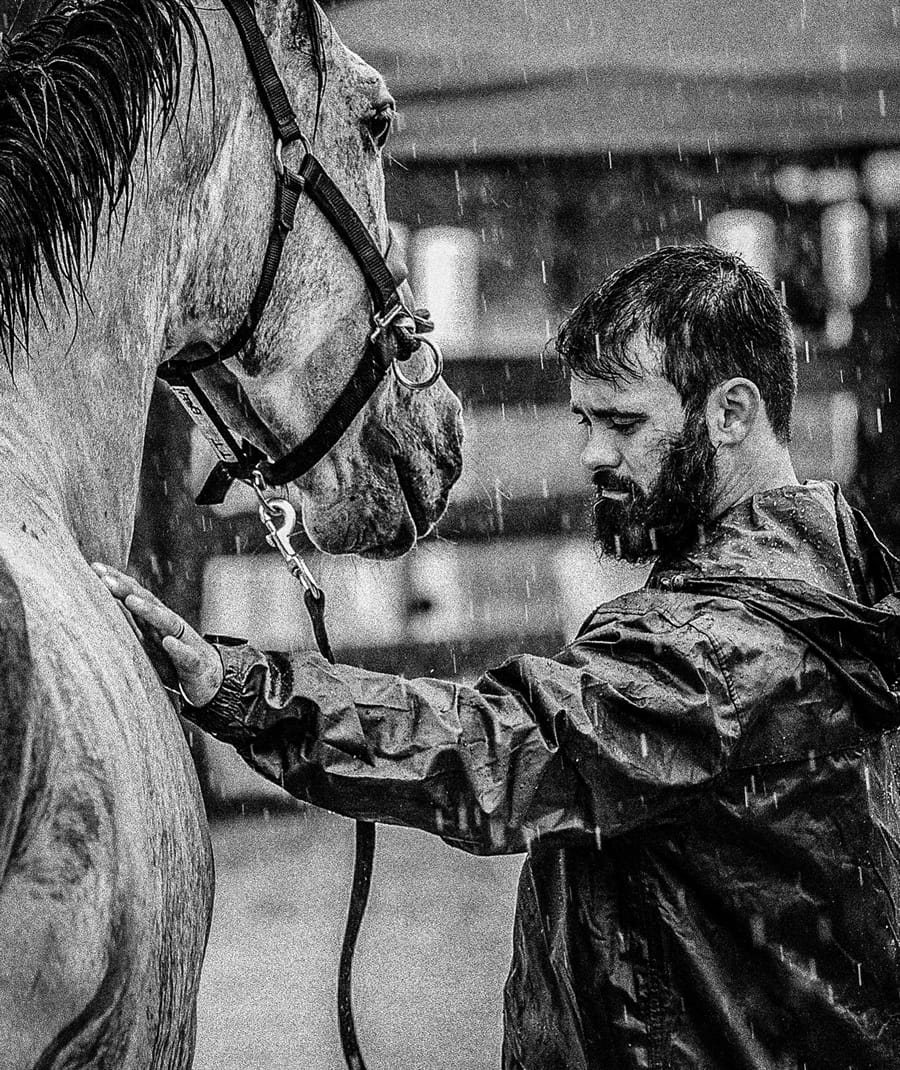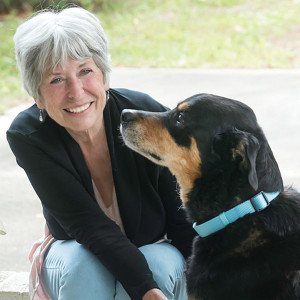It was nearly half a decade ago. Yet I remember – I will forever remember – the day I met a horse named Frodo.
It was on the grounds of the Aiken Equine Rescue, and Frodo was a participant in the remarkable Saratoga WarHorse program conducted there — an equine-based, peer-to-peer, veterans program that addresses the unseen wounds of both military post traumatic stress and off-the-track Thoroughbreds. I wrote about Frodo then, as I will write about him now.
Frodo was bred to race. Frodo, however, amiably declined.
A large, gray, beautiful Thoroughbred, Frodo simply refused to conform to the life of a racehorse. He just didn’t have the heart for it. Instead, his heart was much more inclined toward building relationships. Rather than compete, he preferred to socialize. Rather than train for the opportunity to stand grandly inside a winner’s circle, he inherently walked gently around in the corners of people’s souls.
Frodo was one of the lucky ones. His people recognized — and honored — his personality and inclinations. They retired him from the racetrack early in his career. And they brought him to Aiken Equine Rescue. Here, they believed he would find a more compatible way of life — perhaps adopted out to be a beloved companion animal, or perhaps retrained as an eventer or hunter-jumper.
But once on the Rescue farm, Frodo immediately caught the eye of the staff and volunteers, especially those who were involved with the Saratoga WarHorse program.
I had heard about Frodo and his remarkable work for this incomparable program in Aiken. But when I saw him — and was privileged to watch him during a session with the veterans — I felt his energy of healing and compassion and human connection even from yards away. And I found myself forgetting to breathe.
Frodo was a healer without discrimination: men as well as women; veterans of combat, and those with wounds sustained away from the battlefield; those freshly damaged, along with those who have suffered far too long. He instinctively understood the pain and brokenness. He did not judge. He taught and instilled forgiveness. He traded fear for understanding, replaced isolation with compassion. He enabled comfort to become spirit-driven renewal. To look into Frodo’s eyes was to witness the truth of empathy.
There is a line in Camus’ book The Plague that seemed to align so greatly with Frodo’s life that it was hard to believe it was written 70 years and a “plague” of wars earlier. With slight paraphrasing …
“I have no idea what’s awaiting me, or what will happen when this all ends. For the moment, I know this: there are hurting people and they need healing.”
I had no idea what was awaiting Frodo, or what would happen when his time with the program ended. For that moment, I knew this: his power of compassion and understanding and breakthrough relief was directed at those who needed him the most. And Frodo, the racehorse-turned-war-horse, was passionately devoted to something he could never have been bred for — but to which he was unquestionably born.
Not long after I first wrote about Frodo, he moved on. He evolved in his talents with brilliance. Adopted into a loving home, as the original plan had been, he has taken enthusiastically to trail riding, and is training to jump. With his inherent beauty and spirit, he continues to compel recognition, charm hearts, claim souls.
And yet, I suspect Frodo will always remember his time here as a WarHorse healer — just as I know he is remembered by those who encountered him in the roundpen, those who connected with him, were touched by him, given new courage by him, changed forever by him.
After all, I simply stood at the edge of a field … watching, holding my breath, feeling his heart, his energy … and I remember Frodo. I will forever remember Frodo.

© Marti Healy 2020
Photo © by Shelly Marshall Schmidt
“I have no idea what’s awaiting me, or what will happen when this all ends. For the moment, I know this: there are hurting people and they need healing.”
























